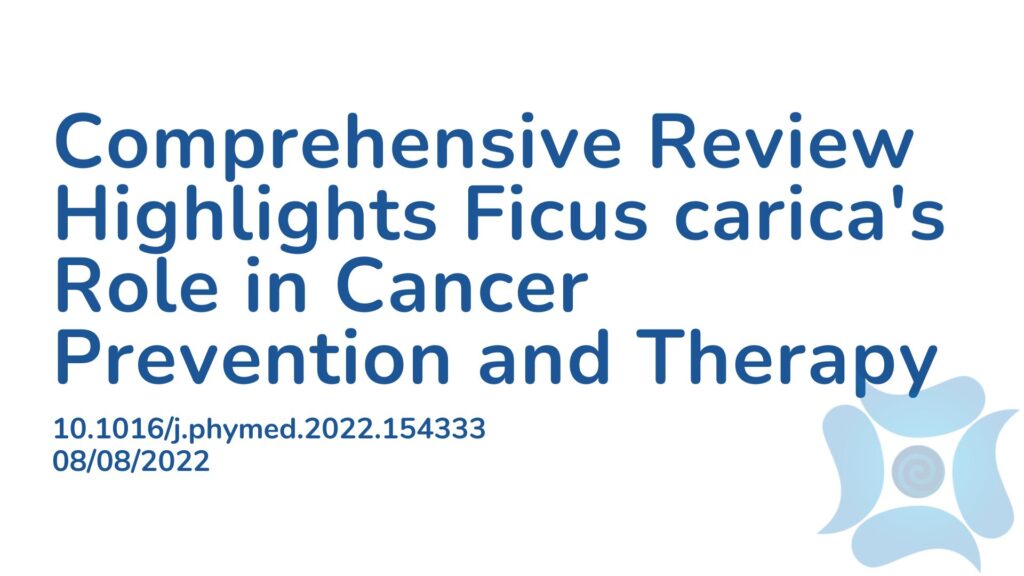Summary:
Ficus carica, commonly known as fig, has demonstrated a significant ability to inhibit tumor formation and cancer cell development by modulating various signaling mechanisms and interacting with numerous beneficial molecules. This study aimed to explore this further and provide a comprehensive evaluation of the mechanism of action as well as Ficus carica’s anticancer potential across various malignancies. This systematic review analyzed 27 individual studies. The results showed that treatment containing Ficus carica, either alone or in combination with other medications, was consistently linked to anticancer activity. Ficus carica also showed pathways to prevent cancer initiation and progression by modulating several dysregulated signals involved in cell proliferation and metastasis. The systematic review concluded that its findings suggest Ficus carica and its phytochemicals hold promise for cancer prevention and therapy.
Abstract:
Background: Many substances derived from nutritional or medicinal plants have been studied for their chemopreventive and antineoplastic properties. Among those studied, Ficus carica has shown to have a significant ability to inhibit tumor formation and development of cancer cells through modulating various signaling mechanisms and interaction including a large number of cell signaling molecules. Purpose: The goal of this study is to provide a critical and complete evaluation of F. carica’s anticancer capacity in various malignancies, as well as related molecular targets. Methods: Research was conducted electronically on scholarly scientific databases, including Science Direct, PubMed, and Scopus. Published papers were analyzed and investigated using the keywords, Ficus carica, figs, cancer, malignancies and tumor based on established selection criteria. In this systematic review, 27 individual studies were considered. Results: Treatment with F. carica alone or in combination with other medications was linked to anticancer activity with significant evidence. Furthermore, F. carica has been shown to use multitargeted pathways to prevent cancer initiation and development by modulating numerous dysregulated signaling cascades involved in cell proliferation, cell cycle regulation, apoptosis, autophagy inflammatory processes, metastasis, invasion, and angiogenesis. Conclusion: Our findings suggest that F. carica and its phytochemicals have the potential for cancer prevention and therapy. Nonetheless, additional mechanistic studies with pure compounds derived from F. carica and well-designed clinical trials are needed to advance our knowledge to clinical application.
Article Publication Date: 08/08/2022
DOI: 10.1016/j.phymed.2022.154333



